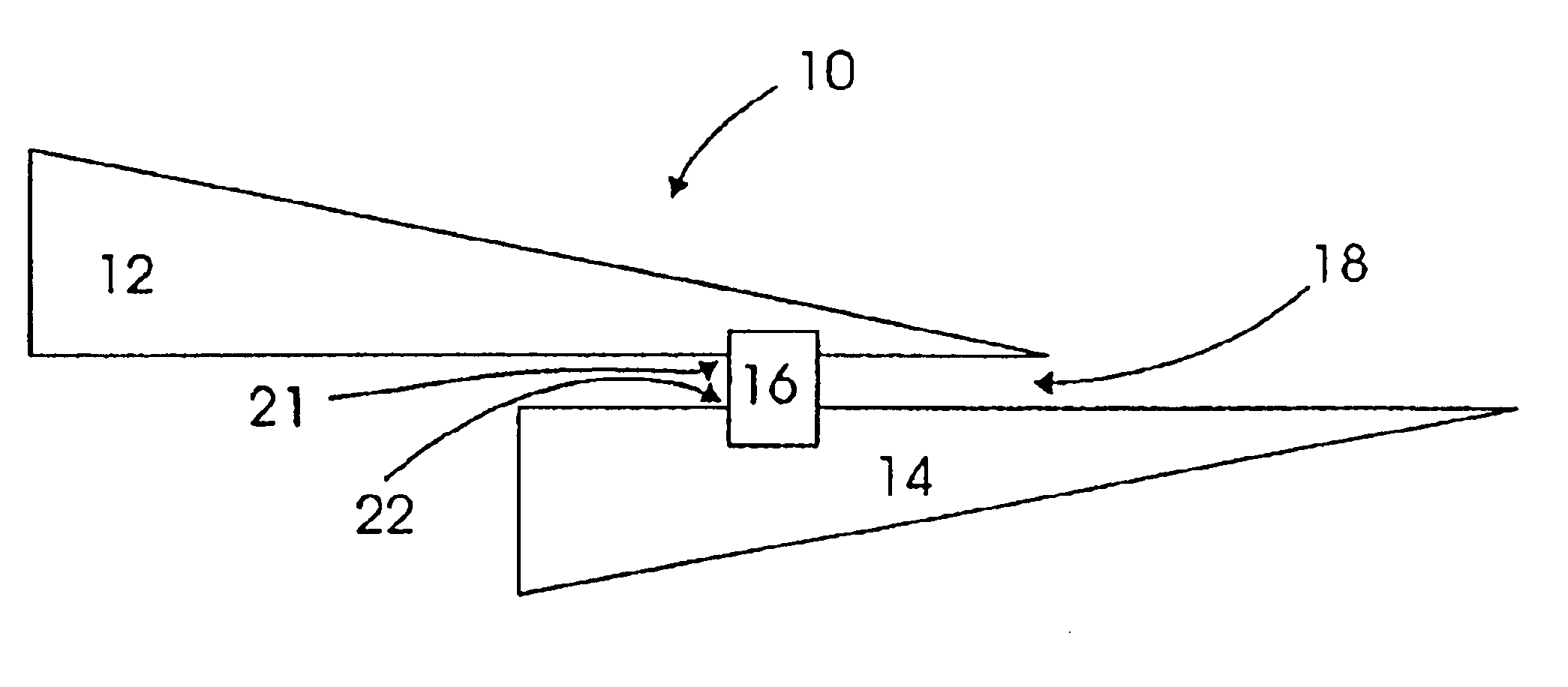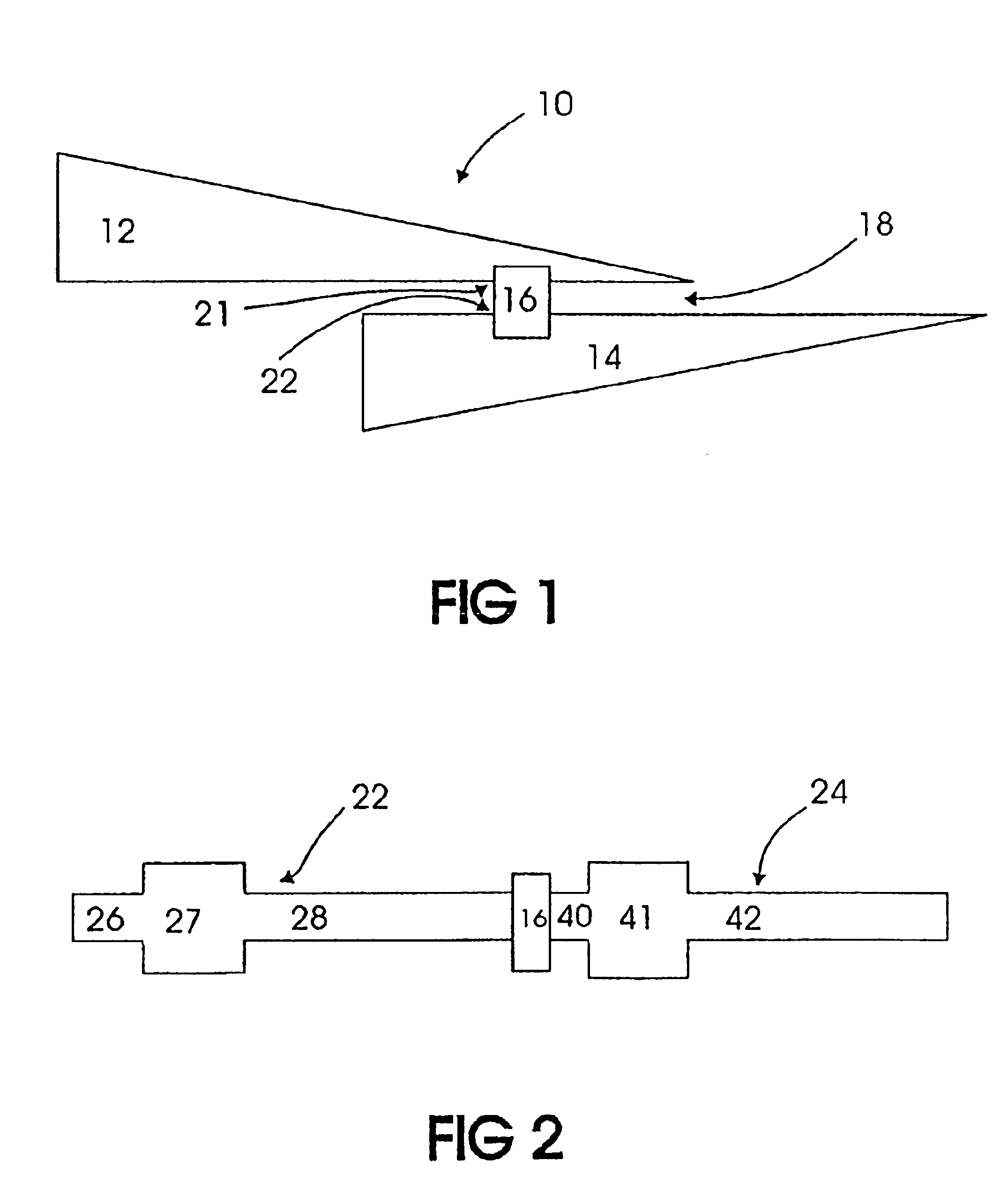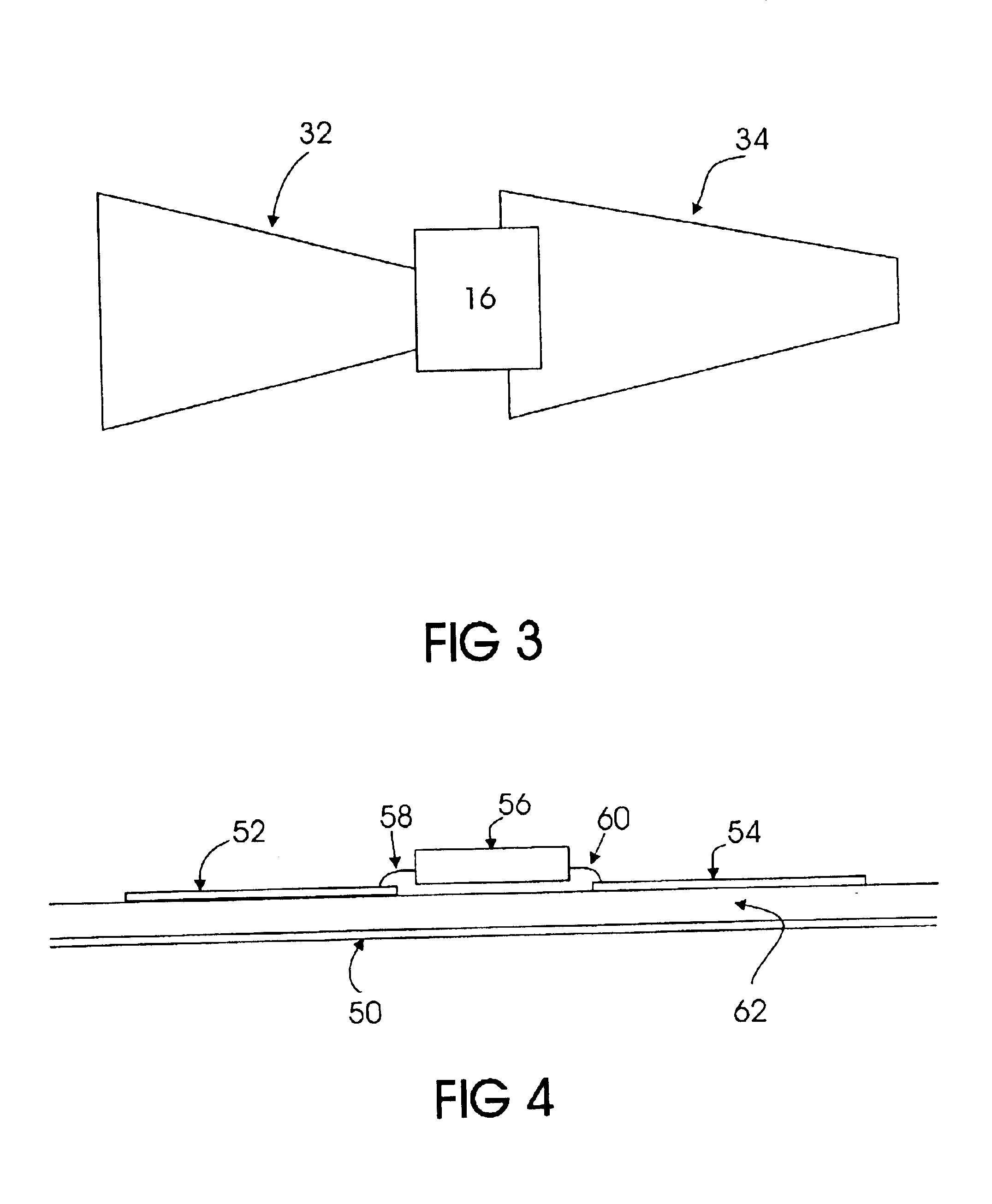RFID tag using a surface insensitive antenna structure
a surface-sensitive, antenna-based technology, applied in the direction of antenna supports/mountings, burglar alarms by hand-held items removal, etc., can solve the problems of inacceptable variations in the impedance of the rfid device, packaging material variations, etc., to achieve convenient lamination flexibility, improve performance, and facilitate manufacturing
- Summary
- Abstract
- Description
- Claims
- Application Information
AI Technical Summary
Benefits of technology
Problems solved by technology
Method used
Image
Examples
Embodiment Construction
[0037]The present invention is directed to a radio frequency identification device (RFID) and its antenna system as it is attached to a package or container to communicate information about the package or container to an external reader. The package may be an individual package containing specific, known contents, or an individual, exterior package containing within it a group of additional, interior individual packages. The word “package” and “container” are used interchangeably herein to describe a material that houses contents, such as goods or other individual packages, and equivalent structures. The present invention should not be limited to any particular meaning or method when either “package” or “container” is used.
[0038]FIG. 1 illustrates one embodiment of the present invention that is found in an RFID tag 10 that includes a wireless communication device 16. The device 16 may be either active in generating itself the radio frequency energy in response to a received command,...
PUM
 Login to View More
Login to View More Abstract
Description
Claims
Application Information
 Login to View More
Login to View More - R&D
- Intellectual Property
- Life Sciences
- Materials
- Tech Scout
- Unparalleled Data Quality
- Higher Quality Content
- 60% Fewer Hallucinations
Browse by: Latest US Patents, China's latest patents, Technical Efficacy Thesaurus, Application Domain, Technology Topic, Popular Technical Reports.
© 2025 PatSnap. All rights reserved.Legal|Privacy policy|Modern Slavery Act Transparency Statement|Sitemap|About US| Contact US: help@patsnap.com



